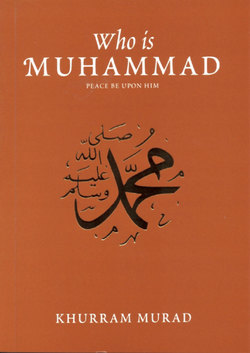Читать книгу Who is Muhammad? - Khurram Murad - Страница 7
На сайте Литреса книга снята с продажи.
Оглавление2
Early Life in Makkah
It was in the year 570, after Jesus, that Muhammad was born in Makkah, in what is now Saudi Arabia. Arabia, by all accounts, is the cradle of the human race. All the oldest human remains so far found come from the area of its location.
Hemmed in by red, black and brown volcanic hills about 80 kilometres to the east of the Red Sea, stands the city of Makkah. It was then a small merchant town on the ancient ‘incense’ route through which passed the great trade caravans between the south and north.
However, Makkah was, and remains, important for an altogether different reason. For here lies the Kabah, the ‘first House’ ever set up for mankind to worship their only God. More than 1,000 years before the Prophet Solomon built the temple in Jerusalem, his ancestor, the Prophet Abraham, aided by his elder son the Prophet Ishmael, raised its walls on very ancient foundations.
Close by the Kabah lies the well called Zam Zam. Its origin, too, goes back to the Prophet Abraham’s time. It was this well which sprang up miraculously to save the life of the infant Ishmael. In the words of the Bible:
And God heard the voice of the boy; and the angel of God called to Hagar out of heaven, and said to her: ‘What ails you, Hagar? Fear not, for God has heard the voice of the boy where he is. Arise, lift up the boy, and hold him in your hand; for I will make him a great nation. And God opened her eyes, and she saw a well of water; and she went, and filled the bottle with water, and gave the boy a drink. And God was with the boy; and he grew and dwelt in the wilderness, and became an archer. (Genesis 21: 17–20)
Or, as the Psalmist sings:
As they pass through the dry Valley of Baca, it becomes a place of springs; the early rain fills it with pools. (Psalms 84: 6)
Makkah never had, nor does it have now, any worldly inducement to offer for settlement. It is a barren, desolate place, where even grass does not grow! There were springs and wells of abundant water nearby in Taif, and a short distance away in Madinah. But it was the first House of God, architecturally an unremarkable cube, but spiritually and civilizationally the most remarkable fountain and spring of life – which made it supremely important, a place of attraction for people from all over the world. Forever, therefore, Makkah has been a great centre of pilgrimage.
By the time Muhammad was born, the Kabah’s latest guardians, the tribe of Quraysh, had more than 300 idols installed in and around the Kabah to be worshipped as lords, gods and intercessors besides the One God. Muhammad was a direct descendant of the Prophet Abraham through the Prophet Ishmael. He belonged to the financially poor but politically strong and noble clan of Banū Hāshim from the tribe of Quraysh. As guardians of the Kabah, the House of God and the centre of pilgrimage for all Arabia, the Quraysh ranked higher in dignity and power than any other tribe. Hashim held the high office of levying taxes and providing the pilgrims with food and water.
Muhammad was born an orphan. His father, Abdullah, died before he was born. His mother, Aminah, too, passed away when he was only six years old. Doubly an orphan, his grandfather, Abd al-Muttalib, took him into his care. Only two years later, however, the orphaned boy was bereaved of his grandfather as well, leaving him in the care of his uncle, Abu Talib.
